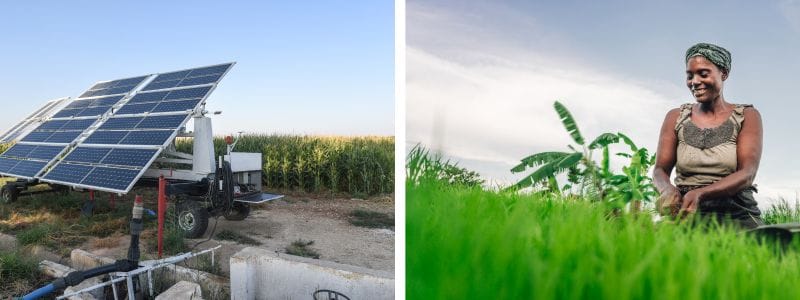Ghana is actively tapping into the strength of its global diaspora. This is helping to drive sustainable agriculture and climate resilience in the nation. There are powerful Ghanaian diaspora initiatives right across the country that are transforming the agricultural landscape. They are introducing innovative techniques and promoting eco friendly practices that ensure long term food security in the agriculture sector.
Among the initiatives is the Diaspora for Climate Action – D4C, which is led by the International Organization for Migration. The program leverages the expertise of the Ghanaian diaspora and benefits from their financial contributions. This initiative has shaped national climate policies and interventions that have empowered the climate change efforts made by the country.
By aligning their efforts with local agricultural needs, powerful Ghanaian diaspora initiatives are making a tangible difference in the fight against climate change.
Sustainable Farming Practices Led by Ghanaian Diaspora initiatives
One of the major focuses of these initiatives is sustainable agriculture. Diaspora-led programs are equipping farmers with climate-smart agricultural techniques in agroforestry and organic farming. These programs are leading the way to a better future that is void of environmental impacts and climate degradation. They ensure that Ghana’s agricultural sector remains resilient in the face of climate shifts.
For example, in Northern Ghana, projects like the Resilience Against Climate Change-Social Transformation Research and Policy Advocacy (REACH-STR) are integrating social and environmental factors into climate adaptation strategies. These programs have gotten the strong support of the Ghanaian diaspora and have enhanced water resilience and improved irrigation efficiency. As a result, farmers are being empowered, and communities are being fed.
Investment in Renewable Energy and Technology

These powerful Ghanaian initiatives go beyond agriculture. They are also paving the way for renewable energy. Many diasporans are supporting technologies like solar powered irrigation and eco friendly facilities. These interventions have led to reduced post harvest losses while maintaining environmental well being. They have also reduced the country’s dependence on fossil fuels while maintaining stable food production.
In addition, digital platforms supported by the diaspora are connecting farmers to global markets, providing them with better access to trade opportunities. Through these networks, Ghanaian farmers can secure fair prices for their produce, ultimately strengthening the country’s agricultural economy.
Financial Contributions By Ghanaian Diaspora initiatives
There are already many Ghanaian diasporans abroad contributing to these efforts. But you too can help. Contact the local offices of any of these initiatives to find out how you can help. You can offer direct investments, grants, or strategic partnerships, joining these powerful Ghanaian diaspora initiatives. They are funding projects in reforestation and soil conservation with even broader sustainability goals to support the AfCFTA.
The Way Forward
Powerful Ghanaian diaspora initiatives have been led by Ghanaians and the African diaspora abroad and are helping to shape the landscape for a brighter agricultural future in the country. With a growing need for sustainable ways to do agriculture, these initiatives come at a pivotal moment in time. They help to protect the environment while supporting local farmers.
From promoting sustainable farming to investing in clean energy and financial empowerment, these programs are vital to Ghana’s future. As the country continues to navigate environmental challenges, the engagement of its diaspora remains a crucial pillar of progress. Now is your turn to join hands and become a part of this team charged by diasporan support.











